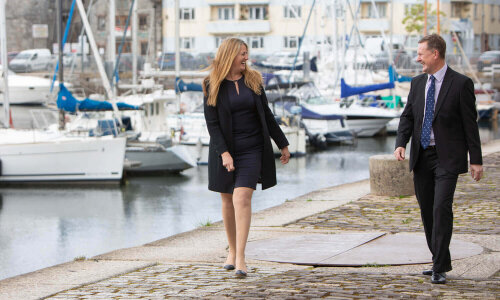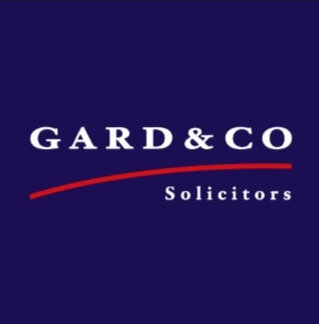Best Travel Accident Lawyers in Plymouth
Share your needs with us, get contacted by law firms.
Free. Takes 2 min.
List of the best lawyers in Plymouth, United Kingdom
About Travel Accident Law in Plymouth, United Kingdom
Travel accident law in Plymouth, United Kingdom, covers legal claims arising from injuries or losses sustained while traveling. This may occur while using public transport, private vehicles, taxis, or as a pedestrian. It includes incidents ranging from road traffic collisions, slips and falls at transport hubs, mishaps on boats or ferries, as well as accidents abroad on package holidays. The aim of travel accident law is to ensure that victims are fairly compensated for their losses and that responsible parties are held accountable under local and national regulations.
Why You May Need a Lawyer
Seeking the advice of a solicitor skilled in travel accident law can be vital following an incident. Here are some common situations where legal help may be necessary:
- If you are injured as a passenger on public transport such as buses, trains, or ferries within Plymouth
- If you sustain injuries in an accident while on holiday in or outside the UK
- If you are involved in a car accident and are unsure about liability or compensation
- If your travel insurance claim is disputed by the provider
- If you must deal with cross-border legalities due to an accident abroad
- If you are a pedestrian or cyclist hit by a vehicle
- If a loved one has suffered fatal injuries while traveling
- If you are unsure of your rights or the claims process following a travel accident
A lawyer can help you understand your rights, guide you through the claims process, negotiate with insurers, and represent you in court if needed.
Local Laws Overview
Travel accident cases in Plymouth are subject to both local council regulations and national UK law. The Road Traffic Act 1988 applies to most vehicular incidents, establishing duties for drivers and insurance requirements. Transport operators are regulated by national agencies and owe a duty of care to passengers under the Occupiers' Liability Act 1957. For accidents abroad, the Package Travel and Linked Travel Arrangements Regulations 2018 offer consumer protections for packaged holidays. Time limits are imposed by the Limitation Act 1980, generally allowing claimants three years from the date of the accident to file most personal injury claims. There are exceptions, especially for children and those lacking capacity. Public liability law also covers accidents occurring on council property such as stations, airports, and bus stops.
Frequently Asked Questions
What should I do immediately after a travel accident in Plymouth?
Seek medical attention first. Report the accident to the police or transport facility staff if relevant, gather details of witnesses, and retain all travel documents and receipts. Photographs of the scene and your injuries can also help.
Who can make a travel accident claim?
Anyone who has suffered an injury due to someone else's negligence while traveling in Plymouth or while departing from/returning to Plymouth may be eligible to make a claim. Sometimes claims may also be made on behalf of children or those incapacitated.
How long do I have to make a travel accident claim?
Generally, you have three years from the date of the accident to make a personal injury claim. Shorter limits may apply to accidents abroad or on certain types of transport, so seek legal advice as soon as possible.
What compensation can I receive for a travel accident?
Compensation may cover medical expenses, lost earnings, pain and suffering, out of pocket costs, and sometimes future losses due to long-term effects of the injury.
Can I claim if the accident happened on public transport?
Yes. Operators of public transport owe a duty of care to passengers. If negligence can be shown, you may be entitled to compensation for injuries suffered.
What if the accident happened abroad but I booked through a UK company?
If you booked a package holiday with a UK-based company, the Package Travel Regulations may allow you to claim in the UK, even if the accident happened overseas.
What if the other party involved is uninsured or unknown?
If the liable party is uninsured or cannot be traced (hit and run), you may still be eligible for compensation via the Motor Insurers' Bureau or relevant schemes for untraced drivers.
Do I need to use a local Plymouth lawyer?
Using a solicitor familiar with Plymouth and UK travel accident law ensures you have advice tailored to your situation and an understanding of local procedures and courts.
Can I claim on behalf of someone else?
Yes, in certain cases such as for children or those without mental capacity, claims can be made by a representative or litigation friend.
What if I was partly to blame for the accident?
You may still be able to claim compensation, but any awarded amount could be reduced proportionate to your level of responsibility (contributory negligence).
Additional Resources
Here are some resources and organisations that may help if you have experienced a travel accident in Plymouth:
- Plymouth City Council - To report accidents on public land or transport
- Citizens Advice Plymouth - For free guidance and signposting to legal services
- Association of Personal Injury Lawyers (APIL) - Find accredited solicitors
- Motor Insurers' Bureau (MIB) - For uninsured or untraced driver claims
- Devon and Cornwall Police: For accident reporting and documentation
- Healthcare providers: For medical records supporting your claim
- Legal Aid Agency: If you require financial assistance with legal fees
Next Steps
If you have suffered a travel accident in Plymouth and believe you may have a legal claim, consider these steps:
- Seek medical attention and keep all documentation
- Report the accident to the relevant authority (police, transport provider, council)
- Gather evidence, including photographs, witness statements, and receipts
- Consult with a qualified travel accident solicitor familiar with Plymouth
- Discuss your case to understand your rights, potential compensation, and the claims process
- Follow your solicitor's advice on next actions, which may include pre-action communications, negotiation, or court proceedings
Taking prompt action and seeking expert legal guidance increases your chances of a successful outcome and a fair settlement for your injuries or losses.
Lawzana helps you find the best lawyers and law firms in Plymouth through a curated and pre-screened list of qualified legal professionals. Our platform offers rankings and detailed profiles of attorneys and law firms, allowing you to compare based on practice areas, including Travel Accident, experience, and client feedback.
Each profile includes a description of the firm's areas of practice, client reviews, team members and partners, year of establishment, spoken languages, office locations, contact information, social media presence, and any published articles or resources. Most firms on our platform speak English and are experienced in both local and international legal matters.
Get a quote from top-rated law firms in Plymouth, United Kingdom — quickly, securely, and without unnecessary hassle.
Disclaimer:
The information provided on this page is for general informational purposes only and does not constitute legal advice. While we strive to ensure the accuracy and relevance of the content, legal information may change over time, and interpretations of the law can vary. You should always consult with a qualified legal professional for advice specific to your situation.
We disclaim all liability for actions taken or not taken based on the content of this page. If you believe any information is incorrect or outdated, please contact us, and we will review and update it where appropriate.











